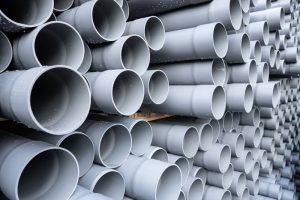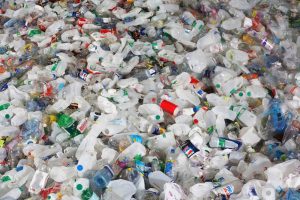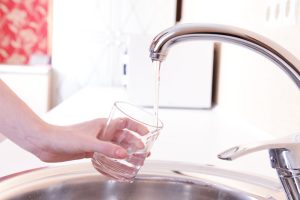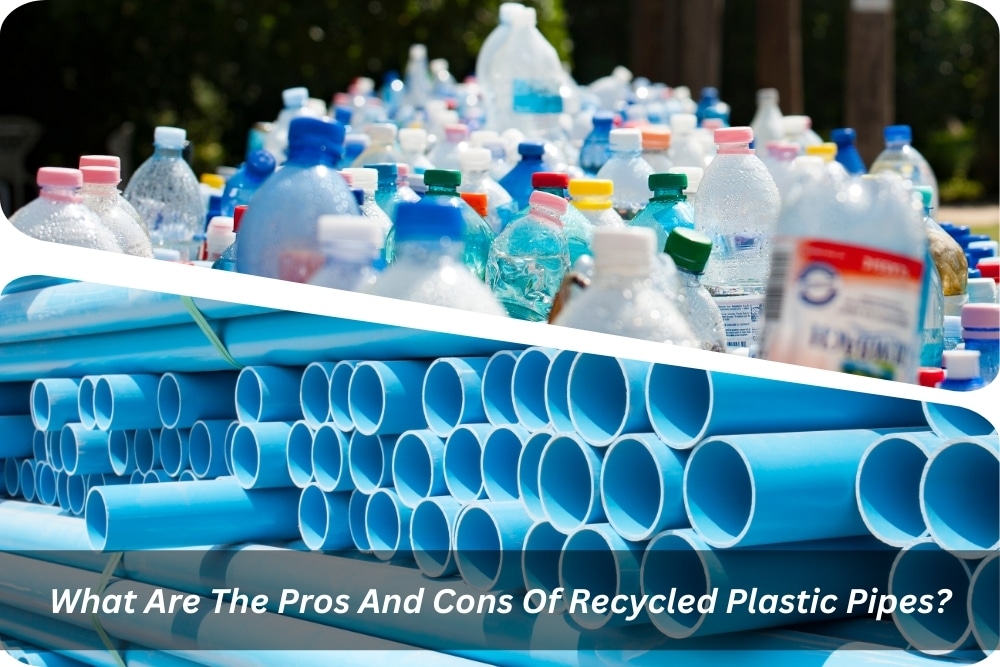In an age where sustainability is a major concern, the plumbing industry is embracing innovative solutions to reduce its environmental footprint. One such advancement is the use of recycled plastic pipes. But are they an ideal eco-friendly option for your next plumbing project? Let’s delve into the world of recycled plastic pipes, exploring their creation, the environmental and performance benefits they offer, and any potential drawbacks to consider.
How are recycled plastic pipes made?
The journey of a recycled pipe begins with plastic waste – discarded bottles, containers, and other plastic items. These are collected and meticulously sorted to remove contaminants. Next, the plastic undergoes a rigorous cleaning process to ensure its purity. The clean plastic flakes or pellets are then melted down and extruded into the desired pipe shapes and sizes. This process breathes new life into plastic waste, transforming it into a valuable and functional building material.
What are the environmental benefits of using recycled plastic pipes?
Choosing recycled pipes for your plumbing project comes with a multitude of environmental advantages. Here’s how they make a positive impact:

- Reduced reliance on virgin plastic production: Manufacturing virgin plastic requires significant resources and energy. By opting for recycled products, you’re actively reducing the demand for new plastic production. Thereby conserving precious fossil fuels and minimising the environmental impact associated with extracting and processing raw materials.
- Lower energy consumption during manufacturing: Compared to virgin plastic production, the process of transforming recycled plastic into pipes requires considerably less energy. This translates to a smaller carbon footprint and a significant step towards a more sustainable future for our planet.
- Potential diversion of plastic waste from landfills: Plastic waste is a major environmental concern. Landfills are overflowing with plastic, and it can take hundreds of years for it to decompose. These pipes offer a valuable solution by diverting plastic waste from landfills and giving it a new lease on life.
What are the performance advantages of recycled plastic pipes?
Beyond their environmental benefits, these pipes offer several performance advantages that make them a compelling choice for many plumbing applications:
- Inherent corrosion resistance: Unlike metal pipes that are susceptible to rust and corrosion, these pipes are naturally resistant to corrosion. This translates to a longer lifespan for your plumbing system and reduced maintenance costs in the long run.
- Lightweight and easier to install: Recycled plastic pipes are significantly lighter than traditional metal pipes, making them easier to transport, handle, and install. This translates to faster installation times and potentially lower labour costs for your plumbing project.
- Good flow characteristics (depending on pipe type): These pipes, particularly those made from high-density polyethylene (HDPE), offer excellent flow characteristics. This translates to smoother water flow with minimal friction loss, which can be beneficial for maintaining consistent water pressure throughout your plumbing system.
Are there any potential drawbacks to consider with recycled plastic pipes?
While recycled pipes offer a compelling eco-friendly solution, it’s important to consider some potential drawbacks:
- Potential variations in material properties compared to virgin plastic: The quality of recycled plastic can vary depending on the source material and the recycling process. In some cases, recycled pipes might have slightly less consistent material properties compared to virgin plastic pipes. However, advancements in recycling technology are continuously minimising this difference.

- Limited availability in some regions: The availability of recycled pipes might be limited in some regions due to factors like local recycling infrastructure and manufacturing capacity. However, as the demand for sustainable solutions grows, the availability of these pipes is expected to increase.
- May not be suitable for all applications: Recycled plastic pipes, like any other material, have limitations. They might not be suitable for all applications, particularly those involving extreme temperatures or high pressures. It’s crucial to consult with a qualified plumber to ensure the chosen pipe material is appropriate for your specific plumbing needs.
How do pipes made from reclaimed materials compare to conventional pipe materials?
Traditionally, copper and PVC pipes have been the go-to options for plumbing projects. Let’s see how recycled plastic pipes stack up against these popular choices:
- Cost: They are generally more cost-effective than copper pipes. While they might be slightly more expensive than PVC, their environmental benefits and potential energy savings over time make them a valuable long-term investment.
- Durability: Copper is known for their exceptional durability. However, recycled pipes, particularly those made from HDPE, offer good durability and can last for decades with proper installation and maintenance.
- Recyclability: Both recycled and PVC pipes are recyclable at the end of their lifespan. However, recycled pipes represent a more sustainable closed-loop system, minimising the reliance on virgin materials.
Is water transported through pipes made from reclaimed materials considered safe to drink?
Rigorous regulations and testing ensure the safety of recycled products for drinking water. Reputable manufacturers subject their plastic pipes to stringent testing to ensure they meet all relevant safety standards for drinking water applications.

These tests assess the potential leaching of chemicals, ensuring the pipes don’t contaminate the water supply. Additionally, look for certifications from independent organisations to guarantee the pipes meet the necessary safety benchmarks.
Where can you find more information about recycled plastic pipes?
For more in-depth information about recycled plastic pipes and their suitability for your specific plumbing project, consider consulting the following resources:
- Plastics Industry Pipe Association of Australia (PIPA): This industry association provides valuable information about the benefits and applications of plastic pipes, including recycled plastic options.
- Your local plumbing supplier: A reputable plumbing supplier can offer expert advice on the different types of pipes available, including recycled pipes, and help you choose the most suitable option for your needs.
Conclusion
To sum up, recycled plastic pipes offer a compelling solution for eco-conscious homeowners and builders. They boast numerous environmental benefits, including reduced reliance on virgin plastic, lower energy consumption during manufacturing, and diversion of plastic waste from landfills. Additionally, recycled pipes offer several performance advantages, such as inherent corrosion resistance, lightweight construction for easier installation, and good flow characteristics in some pipe types.
Considering a recycled pipe for your next project?
At Apex Plumbing Services, we understand the importance of sustainable plumbing solutions, and we’re also experts in tackling existing plumbing problems. Our experienced plumbers are well-versed in the latest advancements in recycled plastic pipes and can advise you on their suitability for your specific project. Additionally, we offer comprehensive pipe relining services using high-quality materials, including recycled plastic options whenever possible.
Whether you’re considering a new plumbing installation with recycled pipes or need a reliable solution to repair existing pipes, our team is here to help. We offer free consultations to discuss your plumbing needs and recommend the most appropriate and environmentally friendly options for your home or building.
Contact us today to schedule a consultation and explore the benefits of recycled plastic pipes or discuss pipe relining solutions. Together, we can create a more sustainable future for our planet, one pipe at a time!


